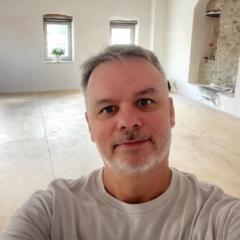Sep '24 • General
WHO CHOSE OUR BELIEFS? 🌀
Belief: Something one accepts as true or real; a firmly held opinion or conviction. A system is a set of things working together as parts of a mechanism or an interconnecting network. Therefore, a belief system is the network of all things that one accepts to be true in their reality.
********************************************************************************
First, we adopted the beliefs of those who raised us; more often than not this was our parents, but perhaps we were raised by our grandparents or grew up in foster care. The specifics don’t matter as much as the simple fact that we were indoctrinated into a set of beliefs that did not necessarily belong to us.
Interlinked with our familial beliefs were the beliefs of the community. This might have been the tendencies of thinking of the town we grew up in or the religious faith we were born into. The beliefs of those who raised us are a subset of the community that they were a part of. While there may be differences, the likelihood is that they would have had similar and conforming beliefs to others in that community. Such is the nature of acceptance in larger groups of people.
If the community was an organized religion, it is interesting to note how we can be handed at birth, an entire belief system; one that features a fleshed out narrative of how things are, how people should behave and what is right and wrong. We did not choose to be part of this religion – instead, we just were until we decided to question it. If, of course, we ever ended up doing that at all. Community, unlike family, can be picked, and we must always remember that we are responsible for the company we keep.
Almost identically to a religious community, we may have been indoctrinated into a political community. Political ideology is not based on universal truth, it is based on conjecture and personal interpretation of morality. The political party we were born into supporting had – just like any religion – had a fleshed out narrative of how things are, how people should behave and what is right and wrong.
Next up, we find cultural beliefs, or the agreed views held by people living within the same culture. In parts of the world, burping after a meal is a sign of gratitude, while in other cultures this behaviour is abhorrent. Neither one is more correct, so we must take note of the “truths” we believe that don't extend past the borders of our country. If we never travel, we can develop the mindset that the rest of the world has more unusual traditions and beliefs than we do, but this mindset exists only as a comparison from our perspective.
The final layer of belief is that of humanity itself. These are the most widely held views that most people agree on – such as it is not great to murder people or that it is more dignified to have a home than be homeless. Even beliefs of this scale are not impervious to change, as certain beliefs are sometimes overturned after a while. For example, the Earth is no longer believed to be flat – which was “truth” before it became a falsehood.
The people who raised us played the roles of developers, writing, bit by bit, the lines of code that would create the operating system that would become our paradigms. Those developers worked for a company, that we might call a community – that had a vested interest in believing certain things and thinking certain ways together. Those communities were inextricably linked to the cultures they were born from – whether through acceptance or resistance of the cultural norm. In all their myriad of differences, all the cultures of the world mesh as puzzle pieces in the overarching structure of humanity itself. This level of belief is where we find the grandest and most grounded concepts of what we believe to be true as humans.
Until the age of 7, we were programmed, with no way to give input or obtain clarity and perspective on what software would be installed into us. We didn't have the mental capacity to shape who we were becoming. Our minds were blank canvases. The tops of our heads were empty bowls, into which were decanted all the beliefs that come with growing up in the environment we just so happened to find ourselves in. At that age, we didn't have the conscious awareness to determine what was truly real to and for us, but more importantly, what would ultimately help or hinder our ability to live a happy and healthy and helpful life. We became products of our environment until the day we wake up and decide to write a different from default story for ourselves.
If we wish to grow into the people we truly desire to become, we must make it our mission to examine and re-examine the beliefs that we have unconsciously inherited and taken to be our own. We must endeavour to make the examination of belief a lifelong habit, as regular maintenance is necessary to ensure we are not living in outdated structures of thinking and being that hold us back.
17
31 comments

skool.com/empowered-artistry-6401
Perfection is overrated anyway
Powered by





